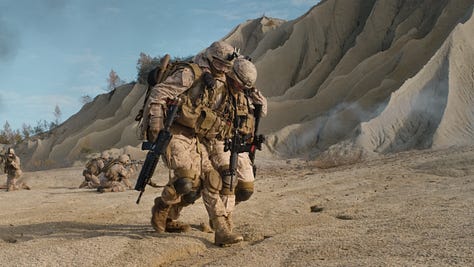The Way Forward – Part 1: From Consensus to Confusion
President Trump’s agenda is entering into a critical phase as his administration:
Contemplates what to do with Russian, which keeps expressing an interest in peace talks even as it escalates war in Ukraine,
Considers what to do about a trade agreement with China that suddenly seems to be at risk of collapsing,
Tries to disable Iran’s nuclear ambitions,
And works to negotiate new trade relationships with our friends even as we rethink our military alliances.
Its safe to say that enacting the president’s foreign policy agenda is proving more difficult than expected. One reason has to do with the reality that geopolitics can be much more complicated than we once assumed, which brings to mind a line from a classic song: “Where have you gone, Joe DiMagio, our nation turns its lonely eyes to you.”
In “Mrs. Robinson”, by Simon and Garfunkel, Paul Simon beautifully invoked the image of a simpler, more dependable era while simultaneously conveying a sense of passage, of letting go, and of transition from a sense of collective purpose to our present state of uncertainty and division.
In the 1960s, for the first time in a century, we experienced a significant re-evaluation of what it meant to be an American, and a gut-wrenching reconsideration of our role in the world. This development started on the political left and, decades later, spread to the right as well. All of which has left us scratching our heads as we collectively ask, “where do we go from here?”
In this Part 1, we’ll explore the critical turning points that led to our current confusion as well as what we’ve learned from these important episodes. In my next post, I’ll set forth a framework for moving forward with specific applications to the matters discussed above.



FROM CONSENSUS TO CONFUSION
A Force for Good in the World
While things are never as simple as they seem in hindsight, there is no question that, prior to the 1960s most Americans (even politicians) had a fairly uniform view of our country. Admittedly, I’m talking about white America but keep in mind, at the time that was almost 90% of the population.
I grew up in the 1960s; my dad was a high school football coach and my mom was an elementary teacher before retiring to stay home full time. Both were Democrats, as were almost all of their friends, who were mostly coaches and teachers. While political bias might have been present in my classrooms, it was virtually undetectable because almost every teacher taught and believed the same thing: America was the greatest country in history and a noble force for good in the world around us.
While this view was obviously too simplistic and one sided, it also reflected a worldview based on what the so-called greatest generations had accomplished over the prior century. Starting with the Civil War of the 1860s, continuing with World Wars and then extending to the Cold War of the late twentieth century, America played an extraordinary role in extending and protecting individual freedom both at home and around the globe. That Lincoln’s Republicans led us to victory in the Civil War and FDR’s Democrats led us to victory in World War II only helped reinforce bipartisan consensus on these matters, as did the unity needed to lead the free world in the Cold War.
But even as my classmates and I absorbed these lessons, it seemed as if the world around us was beginning to change in ways that even “Joltin Joe” DiMagio could scarcely have imagined.
Viet Nam – The Left Splits (1960s - ‘70s)
Interestingly, the initial fracture in our shared view of the world came from the political left and was directed against their own party’s escalation of the Viet Nam War. When John F. Kennedy won the Democratic nomination and then the presidential election of 1960, there were only 900 troops in Viet Nam. By the time of his assassination in 1963, there were over 16,000.
As the sitting vice president, Lyndon Banes Johnson, assumed the presidency after JFK’s assassination and then was re-elected a year later. By 1968, LBJ had escalated the troop count to over 500,000!
In addition to concerns about the war, the general social upheaval of the 1960s led millions of young Americans to question many aspects of society, including racial inequalities, women’s rights, sexual mores, and traditional views about marriage. The left’s internecine struggle culminated at the 1968 Democratic Convention in Chicago, where Democratic mayor Daley’s police force brutally confronted and assaulted hordes of young, left-wing protesters.
On top of all of this, television was the “internet” of this era, a new and radically transformational technology. This new medium captured everything from racial injustice in the Deep South, to police brutality on Chicago’s streets, to the ever-escalating number of body bags coming home from Southeast Asia and vividly delivered it into American’s living rooms on a nightly basis.
As all of this transpired, to say that the far left split off from the traditional views of America is a bit like saying that one side of the Grand Canyon once moved away from the other. Additionally, and equally important, even middle America, if not quite ready to divorce from its prior views, began to have to serious doubts about what it was seeing on the evening news. In retrospect we were all starting to learn, whether we realized it or not, that life can be far more complex than religion, fairy tales, and our history classes had taught us.
Returning to the central point of this discussion, we were also learning that we are not infallible when it comes to global conflicts, and the realities of war are far worse, even for surviving heroes, than we had been led to believe.
While many on the right will have a difficult time acknowledging it, the far left deserves enormous credit for helping to open our eyes to these realities.
The Cold War – the Right Holds (1980s –‘90s)
In other posts (see “A Tale of Two Empires”) I’ve discussed the enormous importance of Ronald Reagan’s historic victory in the Cold War. There were two brilliant insights at the heart of Reagan’s strategy. First, he recognized that communist command and control economies were no match for capitalism. Building on this belief, Reagan also knew that if we could unleash economic growth at home while committing a greater share of GDP to a military build up, the Soviets would be unable to keep up. The later collapse of the Soviet Union proved him right.
With respect to future policy, key lessons from the Cold War included:
1. Ironically, Reagan showed that the far left had been correct about Viet Nam. We did not need to send our young men and women to fight the battle in Southeast Asia in order to prevail in the Cold War.
2. Reagan demonstrated the incredible potential of capitalism not only as a source of upward mobility, prosperity and taking care of the less fortunate, but also as the best means to protect peace and stability.
3. He also revealed the enormous geopolitical potential of isolating and excluding inherently dysfunctional authoritarian systems from our market based economy.
In addition to ending the existential conflict of the late twentieth century, our victory in the Cold War also provided ammunition to those on the political right who continued to believe in the pre-Viet Nam narrative of America as a force for good in the world. Then, our quick and resounding success in the Gulf War of 1991 provided additional confirmation to conservatives that they had been on the “right” side of this issue all along; but that too was about to change.
The Iraq War – the Left Collapses and the Right Begins to Fracture (2000s)
The triumphant victories in the Cold War and the Gulf War, plus the heightened sense of vulnerability resulting from the 2001 terrorist attacks on the World Trade Center inspired renewed resolve and confidence even among many on the left, as evidenced by their support for the Iraq War. As the first lady during the prior administration, then Democratic Senator Hillary Clinton presumably had better intelligence on Weapons of Mass Destruction (WMD) than anyone save the Bush administration, and she voted to go to war. In addition, as a liberal friend commented, the need to take out Saddam Hussein and his weapons seemed to be the one thing the editors at both the liberal New York Times and the conservative Wall Street Journal had ever agreed on.
Nevertheless, in the end the decision to engage in pre-emptive warfare was Republican George W. Bush’s call. When we then failed to find weapons of mass destruction and became bogged down in a distant war with little to show for its enormous human toll, Iraq became the political right’s Viet Nam, the point where a significant number of Republicans lost their prior conviction about foreign interventions. To say that the left’s support also withered like wafting smoke on a windy day would be to overstate the resilience of smoke in a storm.
Three critical lessons emerge from the Iraq War:
First, this experience highlights the enormous risk that pre-emptive strikes will unnecessarily pull us into wars where the costs far outweigh the benefits.
Second, the experience provides evidence that the best deterrence to terrorist-like provocations is not to engage in widespread and unprovoked wars, but is rather to take a much more focused approach to identifying responsible leaders and systematically hunting them down, much like President Obama did when he took office and like what President Trump did when he took out Qasem Soleimani.
Third, the Iraq war taught us about the fraught nature of nation building, which brings us to the final turning point in our long and winding road from consensus to confusion.
Spreading Democracy, Nation Building, and Imposing Our Values (1990 – 2020s)
In addition to the uncertainty created by our experiences in Viet Nam and Iraq, America’s foreign policy confidence has been badly shaken by failed promises relating to globalization, nation building and attempts to impose our values on our non-democratic allies.
The expectation that globalization would spread democracy has so far failed; both Russia and China turned back towards their authoritarian roots and have used access to Western markets to fund their increasingly hostile aggressions.
Bush’s idea that defeating Saddam Hussein would help spread democracy throughout the Middle East has not worked out as promised.
Our progressive attempts to make foreign relations contingent on the adoption of our social values has only pushed former allies away from us and towards hostile regimes like China.
SUMMARY
I still believe in the basic idea that we are, in fact, the greatest nation: one with a long history of unprecedented actions that have helped lift millions out of poverty; one that has fought to extend our founding ideals to more and more of our population here at home while setting a leading example for the rest of the world; and one that has repeatedly helped save major parts of the world from self-destruction. Nevertheless, the last sixty years has taught us that the world can be a much more complicated place than we once imagined, and that even our well intentioned efforts are not infallible.
Today we face important challenges, but none that are greater than those we have overcome time and again throughout our storied history. Here’s to hoping your day is as bright as America’s future.
- Todd, June 1, 2025
If you found this helpful, please recommend it to at least one other person.
Subscriptions are currently FREE – if you’re not already a subscriber, sign up below.
If you’d like to learn more, visit my website: toddsheetswriter.com
To purchase a copy of my book, 2008: What Really Happened, please go to Amazon.com, barnesandnoble.com, Bookshop.org, or encounterbooks.com.

